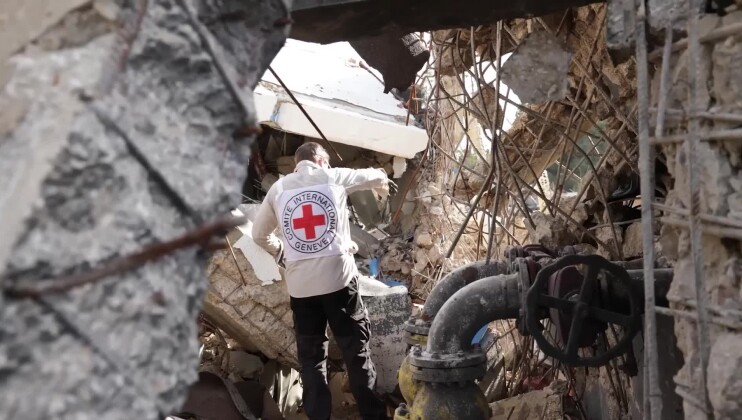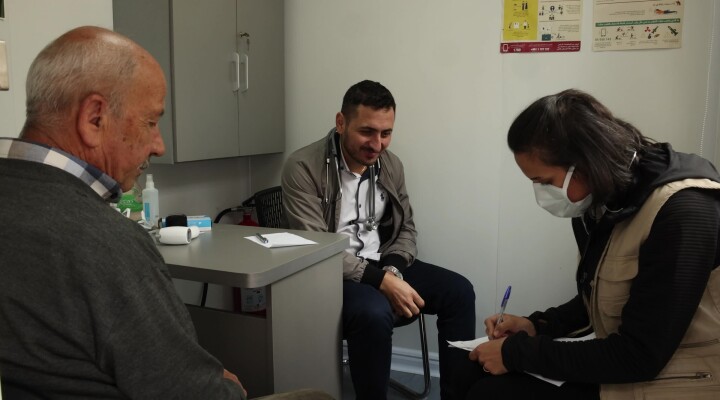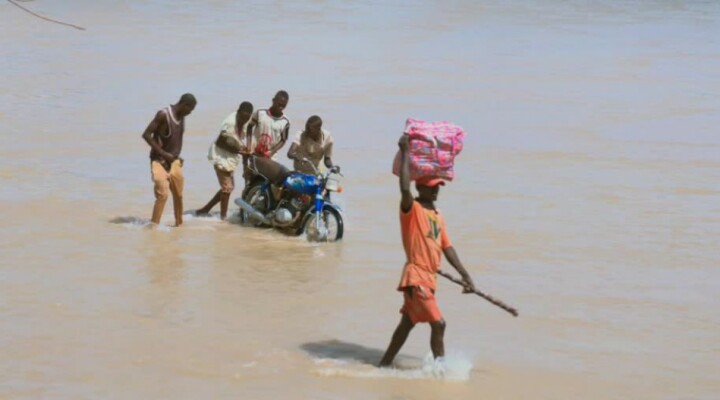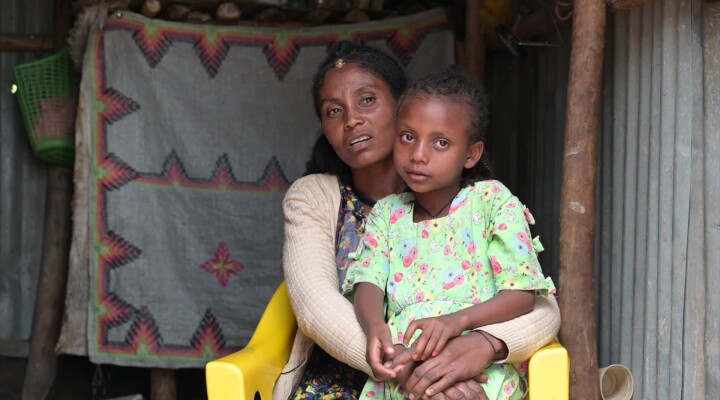Yemen: Cholera outbreak affects thousands
Yemen has suffered devastating destruction because of the two year conflict. The country is in the grip of a humanitarian crisis in which three million people have been displaced, malnutrition is rife, and, the United Nations estimates, a Yemeni child dies every ten minutes from preventable illnesses. Now a cholera outbreak has become the latest, deadly threat. In the last few weeks, the illness has claimed over 220 lives (source Yemen Health Ministry), and thousands more are ill.
Two year old Ragdad Sorari has been brought to Sabeen Hospital in Sana’a. For children of her age, cholera is especially dangerous, and it can kill within hours if untreated. Naturally, Ragdad’s father, Ahmad, is worried.
“She is unable to eat,” he says. “She vomits everything and diarrhea is constant.”
It rained on us here outside yesterday night and it was very cold at night.”
In countries free from conflict, where the health service functions, cholera would be easily and quickly treated. But in Yemen less than half of all health facilities are still working, and Sabeen hospital is now overflowing with patients. Some, like 14 year old Abdullah Mohammad, are especially vulnerable. He suffers from a congenital brain disease which means he cannot talk or move. Now he has contracted cholera, and his mother Um Abdullah is becoming desperate.
“When he first got sick, he had diarrhea and vomiting” she explains. “We took him to a clinic, but they referred us here to the Sabeen Hospital for cholera cases. We came here yesterday and they gave him rehydration salts, but he isn’t getting any better.”
The International Committee of the Red Cross is supporting Sabeen hospital and others across Yemen with medical supplies. But the conflict can mean big delays before vital medicines can be delivered, and meanwhile more and more people are in need. There are so many patients at Sabeen hospital now, that some are forced to wait for treatment outside in the open air. At night, as Ragdad’s father pointed out, it gets very cold.
Across Sana’a at Al Jumhouri hospital, the story is the same: wards are overflowing, and every bed is full, some patients are even forced to share, or to lie on the floor. When the ICRC’s director of operations Dominik Stillhart visited, he found dedicated medical staff working round the clock, but struggling to cope.
“I could see myself, how difficult the situation has become to provide services in a country that is suffering from conflict and lack of income,” said Mr Stillhart. “There is an increasing number of patients, including many cholera patients that we have seen in the ward, it is completely full.”
“The team here under the leadership of Dr Nasser is doing a fantastic job, in a very difficult situation.”
And still the patients keep arriving. Cholera, a waterborne disease, will spread rapidly when clean water supplies are scarce, or have been damaged by conflict. Thousands, perhaps tens of thousands of cases, can be expected. This week Yemen’s government declared a state of emergency because of the outbreak. The ICRC will do its utmost to ensure lifesaving treatments arrive in time, and once again appeals to all parties to the conflict to allow unimpeded access for humanitarian aid.
Facts and Figures
The ICRC has supplied Al Sabeein hospital and others across Yemen with:
More than 15,000 units of IV fluid
25,000 sachets of oral rehydration salts
25 injection sets
Enough to treat 1000 severe cholera cases, and 2000 moderate cases for the next seven days.
For further information, please contact:
Ralph El Hage, Public Relations Officer (based in Amman)
Tel: +962 7 7845 4382
relhage@icrc.org
Marie Claire Feghali, Regional Communications Manager
Near and Middle East
Mobile: +41 79 536 92 31
mfeghali@icrc.org
Matt Clancy, Public Relations Manager
+41 79 574 15 54
mclancy@icrc.org
To find out what the ICRC is doing to support people in Yemen, go to
https://www.icrc.org/en/where-we-work/middle-east/yemen
Follow the ICRC on facebook.com/icrc and twitter.com/icrc
SHOTLIST
Location: Sana’a, Yemen
0:00 – 0:15 Various, Sana’a destruction caused by conflict
0:15 – 0:18 MCU Ragdad in hospital
0:18 – 0:28 Various doctor examining her
0:28 – 0:33 putting in IV drip
0:33 – 0:52 Soundbite Ragdad’s father Ahmad (Arabic) “She is unable to eat. She vomits everything and diarrhea is constant. It rained on us here outside yesterday night and it was very cold at night.”
0:52 – 0:57 – MWS hospital ward, full
0:57 – 1:00 MS mother with crying child on lap
1:00 – 1:04 MCU child
1:04 – 1:07 CU drip in child’s hand
1:07 – 1:11 MS Abdullah in hospital bed, parents looking on
1:11 – 1:14 CU Abdullah profile
1:14 – 1:17 CU mother holding his hand
1:17 – 1:20 CU Abdullah face
1:20 – 1:38 Soundbite Um Abdullah, mother (Arabic) “When he first got sick, he had diarrhea and vomiting. We took him to a clinic, but they referred us here to the Sabeen Hospital for cholera cases. We came here yesterday and they gave him rehydration salts, but he isn’t getting any better.”
1:38 – 1:56 Various, medical supplies being unpacked
1:56 – 2:00 WS crowded outdoor ward
2:00 – 2:04 CU boy’s face
2:04 - 2:08 MS mother on bed with child
2:08 – 2:13 MCU child
2:13 – 2:17 CU child
2:17 – 2:20 CU hand with IV line
2:20 – 2:23 WS crowded ward Al Jumhouri hospital
2:23 – 2:27 Dominik Stillhart in ward
2:27 – 2:32 MWS patients in beds
2:32 – 2:36 MS patient on bed, others in background
2:36 – 2:41 row of patients with IV drips
2:41 – 3:09 Soundbite Dominik Stillhart, ICRC Director of Operations “I could see myself, how difficult the situation has become to provide services in a country that is suffering from conflict and lack of income. There is an increasing number of patients, including many cholera patients that we have seen in the ward, it is completely full.”
3:09 – 3:12 WS Crowds outside hospital
3:12 – 3:17 MS Crowds
3:17 - 3:20 boy lying on hospital bed
3:20 – 3:24 MCU boy sitting up
3:24 – 3:28 old man in hospital bed
3:28 – 3:31 man sitting on bed, woman lying ill behind
3:31 – 3:36 CU old woman
3:36 – 3:43 Various, destruction, Sana’a
Length: 3:43
Format: HD H264 mov
Camera: various
ICRC ref: AV641N
Date: May 2017
Copyright: ICRC access all



